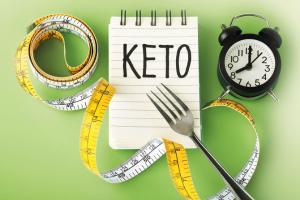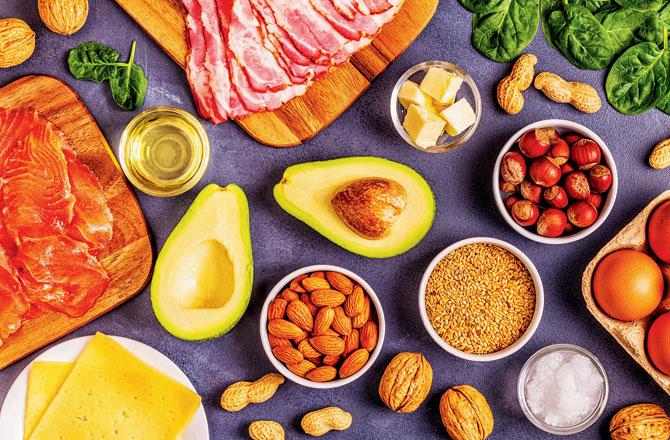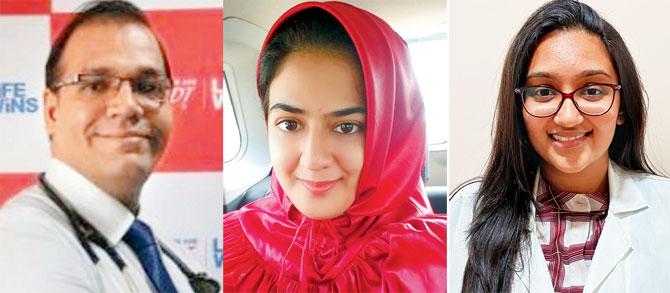After an actress allegedly died while following the ketogenic diet, health experts warn about the risks

Last week, actor Mishti Mukherjee, who was in her mid-thirties, passed away in a Bengaluru-based hospital, owing to kidney failure. The actor, who had starred in several movies, was on a keto diet, which allegedly affected her kidney function. Although the keto diet is one of the most popular ones to have emerged in the past five years — with the likes of Kim Kardashian, Halle Berry and Gwyneth Paltrow, among other celebrities, trying it — Mukherjee's sudden death highlights the need to understand the risk of following fad diets.
ADVERTISEMENT
What is it?
Dr Alifia S Bhol, clinical nutritionist, lifestyle therapist and founder of NutriAl online diet clinic, explains that the ketogenic or keto diet was originally developed as a measure to treat epilepsy patients in the 1920s. "It's a low-carbohydrate, high-fat and controlled protein diet. It was not considered the best measure to treat epilepsy patients, but was used as other forms of medication weren't working," she shares, adding that following the diet leads to the formation of ketone bodies which help with seizures.

Jinal Patel, senior executive dietitian at Apollo Spectra Hospital in Tardeo, says that the daily intake of carbs is reduced to less than 200 gm as per the diet, which leads to a metabolic state called ketosis. "Usually, the carbs act as fuel for the body. In the absence of adequate carbs, your body becomes efficient in burning its own fat as well as the fats you're consuming for energy utilisation. Depending on your body metabolism rate, age and gender among other factors, you can end up losing four to five kg weight within 30 to 45 days," she adds.
Dr Bhol notes that the diet is one of the biggest weight loss trends in the past four to five years: "Because it consists of high-fat foods like butter and cheese, it's very palatable. People love to hear that they can eat this kind of food to lose weight." She tells us that typically, a 4:1 ratio is followed for fats and carbs. "In keto, for every 4 gm of fat, there is 1 gm of carbs. So, you have eggs, cheese, certain kinds of nuts, oils, high fat oil seeds, meat, high protein skimmed products, fish and seafood, and non-starchy, fibrous vegetables," she elaborates.

Effect on health
Dr Bhol points out that since keto diet is restrictive in nature, a lot of vegetables and fruits such as beans, carrots, sweet potato and bananas get left out of daily meals. "One is deprived of several nutrients and vitamins," she says. Doctors also point out that the presence of hidden salts can affect kidney function. "Kidneys are your filtrates and regulate water, sodium and potassium balance in the body. The excessive presence of salt, harmful fats and increased protein, along with existing hypertension, can erode the walls of kidneys," Patel tells us.
Dr Chandan Chaudhari, nephrologist, Wockhardt Hospital, Mumbai Central, claims that taking on a keto diet to shed a few kilos without seeking clinical guidance can aggravate pre-existing kidney problems that one might not be aware of. "It can lead to high uric acid levels, inadequate hydration and acidification of urine, leading to kidney stones. Moreover, if you're just looking it up on the Internet, chances are, you end up consuming excess of bad, saturated fats (for instance, fried meat), instead of polyunsaturated fats, which affects the lipid profile." Dr Bhol asserts that although it has been beneficial for some diabetics, the diet can also spur off sluggish moods and constipation.

Dr Chandan Chaudhari, Dr Alifia S Bhol and Jinal Patel
One size doesn't fit all
All three experts observe that while the keto diet may be a quick way to knock off extra weight, it isn't sustainable. "We don't prescribe it unless you medically need it. There's a big chance of a 'yo-yo effect', or gaining double the weight. If 2020 has taught us anything, it is that health is wealth. And one diet cannot apply to everyone. A diet has to be bespoke," says Dr Bhol. Here are a few guidelines to bear in mind before you take on any kind of diet:
. Consult a dietician or nutritionist before you start. Get your urine sample, blood pressure, sodium-potassium levels and lipid profile checked.
. A health expert always seeks a body composition report to devise a meal plan; Googling for suitable diets can have dangerous repercussions as one size doesn't fit all.
. Avoid keto diet if you have existing kidney issues, hypertension and cardiac problems.
. A balanced, customised diet which includes a fair combination of all nutrients in controlled portions throughout the day is the way to go. You also have to work out daily to stay in shape, and keep yourself healthy.
Keep scrolling to read more news
Catch up on all the latest Mumbai news, crime news, current affairs, and a complete guide from food to things to do and events across Mumbai. Also download the new mid-day Android and iOS apps to get latest updates.
Mid-Day is now on Telegram. Click here to join our channel (@middayinfomedialtd) and stay updated with the latest news
 Subscribe today by clicking the link and stay updated with the latest news!" Click here!
Subscribe today by clicking the link and stay updated with the latest news!" Click here!






